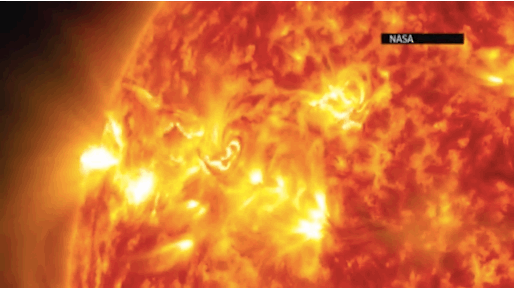In a previous post, I discussed how long the Earth would be able to survive without the Sun. We had to assume that our star would magically disappear into nothingness.
My friend Gavin asked online: “Can we have a follow-up on no Sun and the effect on orbits?”
First of all, we wouldn’t immediately fly off into space. Gravity moves at the speed of light (one of the important findings of gravitational wave observations). The Earth will – mostly – start moving in a straight line and just go off into the cosmos. (At least at first approximation.)
The Earth is not alone in the solar system, but the gravitational pull of the other objects is definitely not going to replace the Sun (98 percent of the solar system’s mass is in the Sun). However, it might have a very weak influence on the exact trajectory.
But what if you want more? What if the likely freezing-to-death of our species wasn’t enough? Could we have something more dramatic? How about a planetary collision?
Thankfully, the odds are against us for this scenario. Planets are really, really far away from each other and the conditions necessary to make the Sun disappear would take an unprecedented set up.
The planets would continue to move, but in a straight line. Their new orbits would only cross if they were both in the same quarter of the orbit, and only if they differ less than ninety degrees. This gives a narrow window for potential crossing points.
But that’s not all: The planets are also moving at different speeds and are so far apart that for two planets to be at the same point at the same time would be practically impossible in this apocalyptic scenario.
For planets to influence and even hit each other you need to maximise the chances of unlikely possibilities. So, you need to have “boring” orbits that repeat themselves.
The Moon was formed by the collision of the proto-Earth with a Mars-sized object, so these dramatic collisions can happen. But if the Sun were to vanish, the freezing grip of the universe taking hold of our planet would realistically be our only worry.
